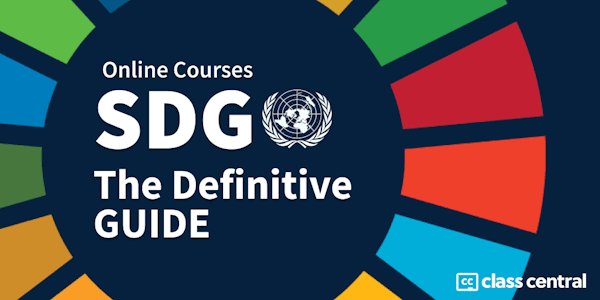Global Energy and Climate Policy
SOAS University of London and University of London via Coursera
-
1.1k
-
- Write review
Overview
The Global Energy and Climate Policy course offers an introduction to the theoretical and practical understanding of how energy and climate change policies are designed, shaped, advocated and implemented. As energy markets go truly global, domestic energy policies are becoming more and more entangled with wider issues of international governance. Concurrently, the urgent need to mitigate and adapt to climate change and transition to a low-carbon future is adding a further layer of complexity.
The course is aimed broadly at people interested in learning more about interconnected issues in energy and climate policy globally. It assumes a level of interest but no necessary previous knowledge. However, the course also offers sufficient up to date research and new critical perspectives to be of interest to people with expertise in or academic familiarity with the topic as well.
The main aim of the course is to provide this wide-ranging introduction in a self-contained, but in-depth form, alongside the important practical skills necessary to understand and discuss energy and climate policy, and lay the groundwork for greater engagement in the future – either through academic study, in the public, private or not-for-profit sectors.
Syllabus
- The future of fossil fuels in a carbon-constrained world
- This week introduces the concept of a carbon-constrained world, considering how it links to energy policies and the future of fossil fuels. It will also discuss the role of technologies such as carbon capture and storage (CCS) and how different stakeholders, in developed and developing countries, perceive the need to decarbonize energy systems.
- The nuclear option: the solution to the energy/climate conundrum?
- This week introduces the competing cases on economic, environmental and political aspects of nuclear power as part of the global energy mix and its role in meeting both energy security and climate change mitigation needs.
- Up-scaling renewable energy: policy incentives
- This week discusses the growing role of renewable energy sources such as wind and solar. It introduces the range of fiscal and other policy tools that governments’ use to promote an increase in the production and consumption of renewable energy.
- Energy and climate governance: two become one?
- This week addresses how energy and climate governance are becoming more inter-related. Climate change is a global collective action problem whereas energy is more often associated with state based priorities. However, emissions from fossil fuel energy have global impacts and pose a challenge to the international community at-large.
- Climate change and energy security: resolving a tri-lemma
- This week provides an introduction to the various conceptualisations of energy security and considers the implications these can have on energy and climate change strategies.
- What next for energy policy with the Paris Agreement on climate change? [OPTIONAL]
- For the week 6 optional exercise, you may draw upon your learning from previous weeks to understand how climate change is changing the focus of energy policy. Specifically, you are asked to consider this in light of the 2015 Paris Agreement on climate change.
Taught by
Harald Heubaum
Reviews
4.5 rating, based on 2 Class Central reviews
4.6 rating at Coursera based on 669 ratings
Showing Class Central Sort
-
The course lectures were very interesting and had views which were realistic and balanced. The assignment as well as additional readings were thought provoking.
-
This course gives a great summary of many of the current policy issues around climate while giving a good basic introduction into any scientific or jargonistic concepts. I also thought is was good that many of the experts interviewed gave different opinions, showing both sides of each debate. Each week takes a different issue and there is a good balance between video and readings.




